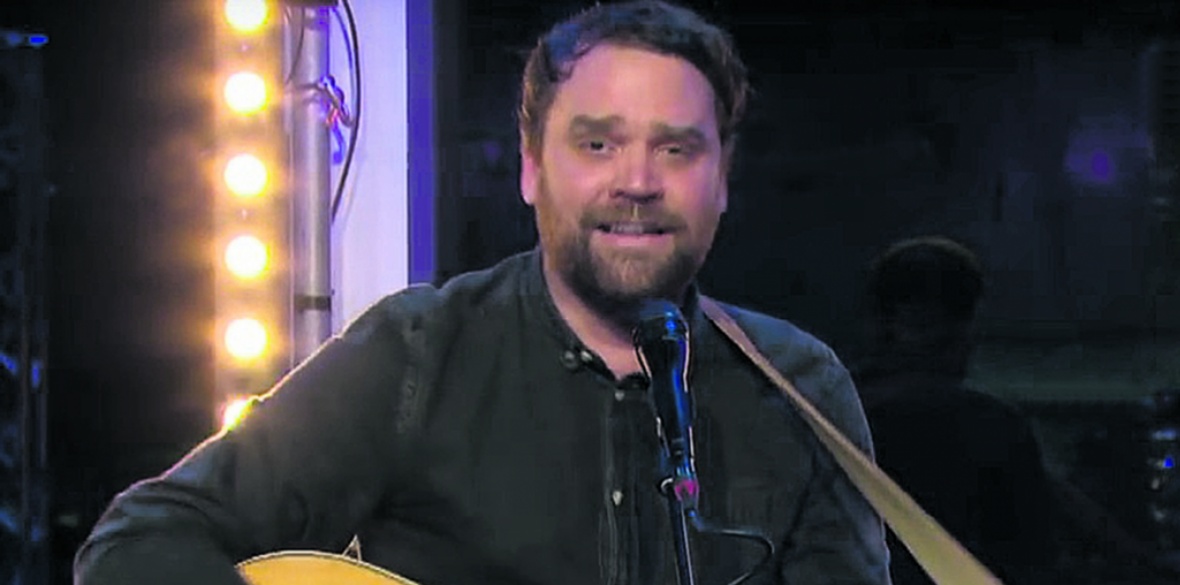This is the last article you can read this month
You can read more article this month
You can read more articles this month
Sorry your limit is up for this month
Reset on:
Please help support the Morning Star by subscribing here
SCOTT HUTCHISON, vocalist and guitarist of Glasgow-based indie rock band Frightened Rabbit, had openly struggled with depression for many years and his death at the age of 36 on May 10 devastated the Scottish music scene.
Tributes immediately flooded in from local musicians within the close-knit Glaswegian music community and well-known figures such as Stuart Murdoch of Belle and Sebastian and Nicola Sturgeon.
Beyond Scotland, fans from all over the world paid homage to a singer-songwriter who will be remembered not only for his talent but also for his compassion, humility and frank approach to mental health.
Like many male indie-rock songwriters, he wrote openly about his battle with depression, but his songs seemed to go beyond the personal. They contained a great deal of empathy and his identity as an artist was interlinked with a desire to reach out and provide some comfort to his listeners.
Since his death, a photograph of a handwritten note he sent to a troubled fan has been circulating on Twitter. “No matter how dark life seems,” it reads, “you are never alone.” Only a few months ago, he told the NME: “I’m really pleased when anyone says that something I have done has helped them… that’s the whole point in a lot of ways. You can’t knock that.”
Frightened Rabbit formed in 2003, originally in Selkirk, though the band have been based in Glasgow since 2004. Hutchison and his brother Grant released their first album Sing the Greys two years later.
Shortly afterwards, guitarist Billy Kennedy joined and the band followed their debut with the critically acclaimed The Midnight Organ Fight in 2008. It's a brilliantly anxious, emotive and energetic record, infused with tense, Elliot Smithesque guitar lines and a fierce, melancholic lyricism that is entirely their own.
The name Frightened Rabbit stems from a nickname coined by Hutchison’s mother in his early childhood, referring to what he called an “almost chronic” shyness, so to choose to release music under such an alias is emblematic of an important part of Hutchison’s legacy.
In a nation where suicide is the single biggest killer of men under 46 but only 36 per cent of referrals to psychological therapies are men, the name itself is a reassuring statement, a positive reclamation of introversion and self-consciousness.
Many of Hutchison’s songs visit feelings men aren’t “supposed” to have — insecurity, fear, physical inadequacy, a longing for sexual intimacy. Keep Yourself Warm, one of the most beautiful songs from The Midnight Organ Fight, captures the loneliness and emptiness that can accompany one-night stands by subverting local, laddish vernacular.
The Scottish phrase “Get your hole” — used jovially to refer to casual sex — is twisted into something mournful and desperate. Church organ chords ring out like funeral bells and Hutchison sounds drunk and woeful as he wails: “My hole, I’ll get my hole, my hole and I’ll find out more.”
Yet there’s nothing maudlin about the track, there’s a lyricism to it that feels almost hopeful. Hutchison humanises his sexual partner, being her “hole” as much as she is his. “I’m drunk, and you’re probably on pills ... if we’ve both got the same diseases, it's irrelevant, girl.” Love and connection is possible elsewhere for both of them. Hutchison is despairing but not hopeless.
There are many phrases in Hutchison’s songwriting that allude to depression. The Modern Leper sees a self-loathing character losing “vital parts from his system” which “dissolve in Scottish rain” and “What’s the blues when you’ve got the greys?” quips the title track of Frightened Rabbit’s debut album.
Many bands have addressed loneliness and despair, but Hutchison is unique in the sheer honesty and the lack of bravado in his approach to these subjects.
“I hate the idea that opening up is in any way emasculating,” he told NME in March. “Even if it fucking is, who cares?... It’s put in a certain way so that [male fans] can associate without feeling like somehow they’re being weak. There’s definitely admittance in these songs but there’s not always weakness.”
In a society so rife with male mental-health stigma, this refiguring of weakness and masculine vulnerability is something that Hutchison will be remembered for and his death is a tragic loss, but he has left us with songs that explore darker feelings with humour, integrity and sometimes brutal, but never glorified, candour.
“While I’m alive, I’ll make tiny changes on Earth,” he sings on Heads Roll Off and by virtue of being the kind of artist he was — a man who seemed to strive to communicate not so much the saccharine message that we’re not alone but rather that we all are, sometimes, and that’s okay — Hutchison fulfilled his promise.
His songs are all tiny changes. That is the legacy he has left behind.











